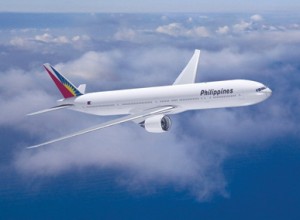PAL orders 54 Airbus aircraft worth $7B

“The orders we are placing with Airbus will play a key role in revitalizing PAL and growing trade and tourism in this country,” PAL chairman Lucio Tan said in a statement.
In a separate statement Airbus said the “firm orders” were for 34 single-aisle A321 ceo planes, 10 of the newer-model A321 neo models and 10 long-haul A330-300s, and delivery would start next year.
PAL said the orders had a list price of $7 billion dollars.
PAL president Ramon Ang told reporters at a press conference announcing the deal that the carrier intended to buy 100 new aircraft in total.
“Our intention is to buy up to 100 aircraft, 26 of that will be long range, wide body,” Ang told reporters, adding all the planes would be bought and none leased.
The announcement comes after San Miguel, one of the Philippines’ biggest conglomerates, bought a 49-percent stake in the loss-making carrier for $500 million in April, and took over management.
Ang is president of San Miguel although billionaire Tan, an ethnic Chinese tycoon who is the country’s second-wealthiest man, remains PAL’s controlling shareholder.
PAL, which began flying in 1941, reported a net loss of $33.5 million in the three months to December, reversing a profit of $15.1 million from the same period the previous year.
It had said the losses were mainly due to soaring fuel costs, and added that it was looking for fresh money to upgrade its fleet.
However the airline’s reputation had also declined, with passengers complaining of old planes, limited flight options and poor service.
PAL has had to watch its status as the nation’s top carrier slide in recent years, giving up the mantle to low-cost rival Cebu Pacific.
PAL was also forced to cut hundreds of flights in September last year after a day-long wildcat strike by ground crew who were protesting the outsourcing of 2,600 catering, airport services and call center reservation jobs.
It took the airline more than a month to cut the flight backlog, however Tan won the battle against the determined unions to outsource the jobs and cut costs.
PAL’s current fleet is made up of 39 aircraft that fly to 31 foreign cities and destinations. Thirty-one of those are Airbus planes. The other eight are Boeing aircraft.